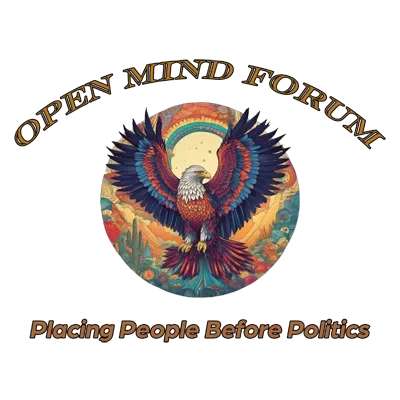A Critique of ‘Phenomenology of Spirit’ and Influence
Hegel’s Influence and Legacy: an Introduction
In this post I discuss Hegel’s Influence on continental philosophy. By taking a look at Georg Wilhelm Friedrich Hegel’s Phenomenology of Spirit we suggest it represents a significant shift in Western philosophy, introducing a framework for understanding consciousness and history through a dialectical process that has influenced thinkers across centuries. This work explores the development of consciousness through stages of contradiction and synthesis, guiding readers toward a concept of “absolute knowledge.” While critiques question the idealism and abstraction of Hegel’s system, Phenomenology of Spirit has profoundly impacted later philosophical traditions, especially in Marx, Adorno, Heidegger, Derrida, and Levinas.
Hegel’s Influence: Methodological Impact of Hegel’s Dialectic
At the core of Hegel’s influence lies his dialectical method, which reshapes traditional views of logic and truth. Instead of following a straightforward thesis-antithesis-synthesis model, Hegelian dialectics frame knowledge as an evolving synthesis of oppositions. This methodological approach has become a tool for analyzing contradictions in thought, history, and social structures. However, critics argue that Hegel’s idealism detracts from the practical

applicability of his theories (Pippin, 1989).
Karl Marx offers one of the clearest examples of Hegel’s methodological legacy, repurposing dialectics for materialist analysis. Whereas Hegel’s dialectic remains a journey within thought, Marx applies it to social relations and class struggle, turning dialectics into a tool for critiquing capitalism (Taylor, 1975). Adorno and the Frankfurt School similarly adapted Hegelian dialectics for social criticism, using it to unveil ideological contradictions and structural injustices within society (Adorno, 1973). Through their work, Hegel’s dialectical method evolved into a foundation for Critical Theory, which emphasizes a dynamic view of society, power, and culture.
Hegel’s Influence in European Philosophy and His Contemporary Relevance
Hegel occupies a unique role in European philosophy, positioned between metaphysical systems and the existential and phenomenological inquiries that followed. Prior to Hegel, Descartes and Kant tackled the limitations of subjective knowledge, but Hegel’s synthesis of subject and object shifted the focus to historically grounded, socially interwoven consciousness (Houlgate, 2005). His notion of a “world spirit” integrating individual experiences with universal truths influenced thinkers like Heidegger and Derrida, each of whom reinterpreted Hegel’s ideas through existential and poststructural lenses.
Heidegger’s concept of historicity, for example, extends Hegel’s idea of self-realization in historical context, yet critiques Hegel’s tendency toward abstraction. Heidegger argues that Hegel’s absolute spirit reduces Being to mere intellectual exercise, disconnecting it from lived experience (Heidegger, 1962). Meanwhile, Derrida deconstructs Hegel’s dialectic, critiquing the implied determinism and questioning the idea of historical progress. For Derrida, contradictions do not resolve but instead reveal layers of deferred meaning, challenging Hegelian views on the progression of truth (Derrida, 1976).
The Ethical Implications of Hegel’s Influence
Hegel’s work integrates ethical concerns with notions of freedom and self-determination, arguing that individuals realize freedom within social institutions. This perspective has resonated with later philosophers, including Emmanuel Levinas, whose emphasis on ethical responsibility toward the “Other” presents an implicit dialogue with Hegel’s view of ethical life. However, while Hegel frames ethics within collective social structures, Levinas prioritizes personal ethical encounters (Levinas, 1969). Levinas’s work on the primacy of the ethical relationship offers a critique of Hegelian ethics by emphasizing relational, rather than structural, ethical obligations.
Husserl’s phenomenology also demonstrates Hegel’s lasting impact, especially in its treatment of consciousness as a process. Although Husserl rejects dialectics in favor of direct phenomenological observation, his understanding of consciousness as unfolding over time owes much to Hegel’s influence. Husserl, however, emphasizes lived experience and personal perception rather than Hegel’s abstract categories (Husserl, 1982).
A Critique of Hegelian Absolutism
Hegel’s concept of “absolute spirit” has drawn criticism for its perceived authoritarianism, which some interpret as a suppression of individual freedom. Theodor Adorno critiques Hegel’s notion of totality, arguing that his dialectical system risks erasing genuine diversity and reducing all difference to mere subservience to the absolute (Adorno, 1973). Adorno’s Negative Dialectics reimagines Hegel’s system, emphasizing unresolved contradictions that allow plurality rather than enforcing unity.
Derrida and Foucault also challenge Hegelian determinism, arguing that Hegel’s teleological history can justify oppressive systems. Derrida’s deconstructionist approach reveals hidden power dynamics within language and meaning, presenting an alternative to Hegel’s notion of dialectical synthesis (Derrida, 1976). By examining language as a site of conflict rather than synthesis, Derrida destabilizes the Hegelian framework.
Contemporary Application and Pragmatic Relevance
Hegel’s Phenomenology of Spirit remains relevant, particularly in fields examining social justice, identity, and phenomenology. Marxist-inspired critiques of capitalism, for instance, rely on Hegelian dialectics to expose systemic injustices. Existential and phenomenological philosophers continue to grapple with Hegel’s explorations of freedom and alienation, integrating these themes into modern analyses of social progress, individual identity, and ethical responsibility.
Conclusion
Hegel’s Phenomenology of Spirit provides a foundational exploration of consciousness, dialectics, and historical development that continues to inform philosophical discussions today. His influence spans generations, impacting a diverse array of philosophical movements, from Marxism to phenomenology to poststructuralism. Although Hegel’s system attracts critiques for abstraction and perceived determinism, his dialectical approach remains invaluable in examining social contradictions and understanding the interrelation of individual and collective identities.
Sources Cited
– Adorno, T. W. (1973). Negative Dialectics. Routledge.
– Derrida, J. (1976). Of Grammatology. Johns Hopkins University Press.
– Heidegger, M. (1962). Being and Time. Harper & Row.
– Houlgate, S. (2005). An Introduction to Hegel: Freedom, Truth, and History. Blackwell Publishing.
– Husserl, E. (1982). Ideas Pertaining to a Pure Phenomenology and to a Phenomenological Philosophy. Martinus Nijhoff.
– Levinas, E. (1969). Totality and Infinity: An Essay on Exteriority. Duquesne University Press.
– Pippin, R. B. (1989). Hegel’s Idealism: The Satisfactions of Self-Consciousness. Cambridge University Press.
– Taylor, C. (1975). Hegel and Modern Society. Cambridge University Press.
Suggestions for Further Reading
- Adorno, T. W. (1973). Negative Dialectics. Offers a critical reimagining of Hegel’s dialectic through a focus on unresolved contradictions.
- Derrida, J. (1976). Of Grammatology. Engages with Hegelian themes, critiquing notions of synthesis and teleology.
- Heidegger, M. (1962). Being and Time. Explores historicity and ontology with significant ties to Hegelian thought.
- Hegel, G. W. F. (1977). Phenomenology of Spirit. The primary text for understanding Hegel’s dialectic and concept of absolute knowledge.
- Kojeve, A. (1980). Introduction to the Reading of Hegel. Discusses the master-slave dialectic and its impact on modern philosophy.
- Levinas, E. (1969). Totality and Infinity. Provides an ethical critique of Hegelian synthesis and advocates for relational ethics.
- Marcuse, H. (1941). Reason and Revolution: Hegel and the Rise of Social Theory. Analyzes the influence of Hegel on social theory and Marxism.
- Pippin, R. B. (1989). Hegel’s Idealism: The Satisfactions of Self-Consciousness. Investigates the development of Hegel’s ideas of self-consciousness.
- Taylor, C. (1975). Hegel and Modern Society. Offers insights into Hegel’s lasting impact on contemporary philosophical and social theory.
Disclaimer: The images and videos in this post are AI-generated creations, intended purely for illustrative and conceptual purposes. They are not real-life representations and should not be interpreted as such. Their sole purpose is to offer a visual means of exploring the topics discussed in this post.




